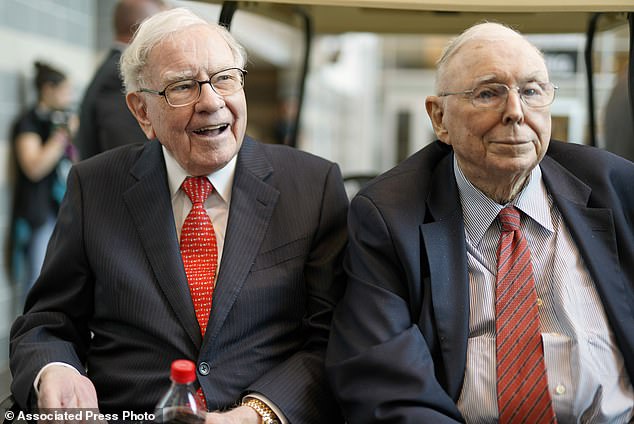Investment guru Charlie Munger was Warren Buffett’s right-hand man and a key figure in the success of Berkshire Hathaway.
Buffett hailed him as the “architect” of his company and described their relationship as “part big brother, part loving father.”
That’s why it’s worth listening to his money advice, even after he dies. He died in December, shortly before turning 100, with a fortune of $2 billion.
One of Munger’s timeless pieces of advice was his perspective on wealth creation: to scrimp and save until you reach $100,000. Once he does, that amount grows rapidly, all due to the effect of compound interest.
During a shareholder meeting in the late 1990s, Munger famously said, “The first $100,000 sucks, but you have to do it.”
Warren Buffett, chairman and CEO of Berkshire Hathaway (left), and Charlie Munger, vice chairman, in 2019 at the Berkshire Hathaway annual shareholder meeting. Buffett credits his longtime partner, the late Charlie Munger, with being the architect of the Berkshire Hathaway conglomerate.
‘I don’t care what you have to do. If that means walking everywhere and not eating anything that wasn’t bought with a coupon, find a way to get $100,000.’
This forceful statement recognizes that reaching that milestone is not easy.
But once people reach that $100,000 mark, their path to greater wealth becomes easier.
This is because compound returns can grow that initial investment significantly over time.
Simply put, compound interest is interest earned on interest.
As the years go by, this will continue to increase and grow at an increasing rate as you earn interest on an increasing account balance.
“After that, you can relieve the gas a little bit,” he said.
While Munger’s statement was made in the mid-1990s, adjusted for inflation, $100,000 then would be roughly equivalent to $200,000 today.
Many financial advisors today echo Munger’s sentiment, recognizing that the first $100,000 is often the most difficult and crucial step in building wealth.
The path to this sum will vary depending on individual circumstances: some will need to get a second job or side jobs, while others might cut back on spending.
However, Munger’s message is clear: the path to wealth creation begins with achieving this first crucial milestone.



